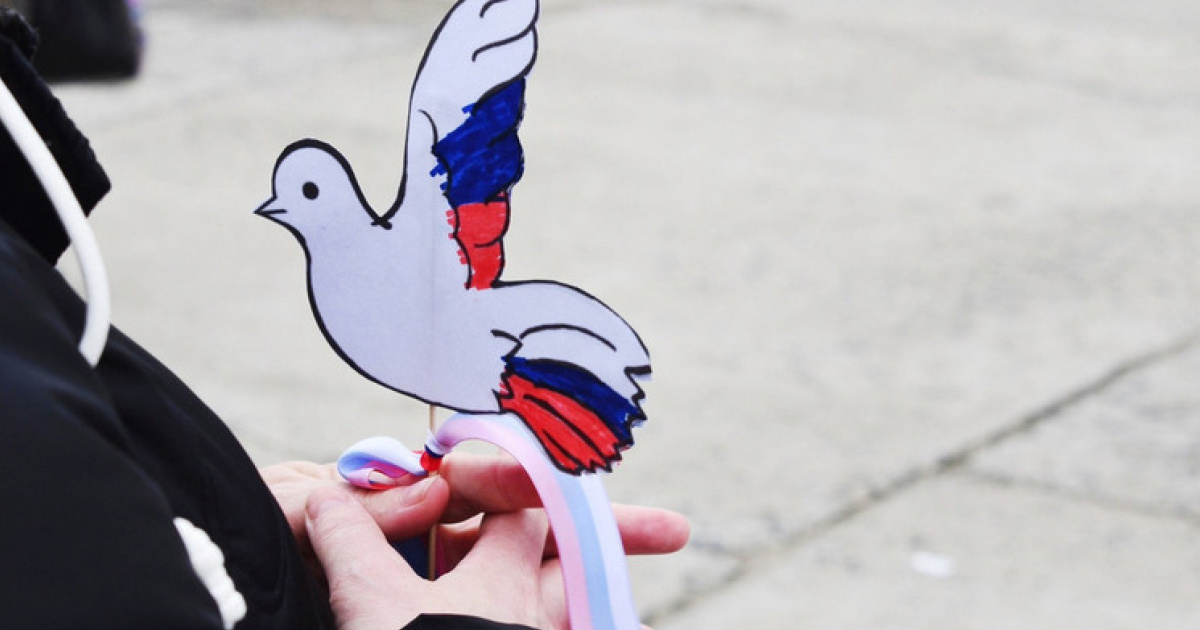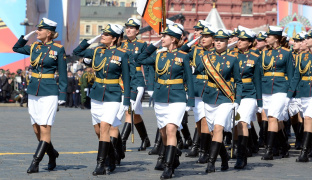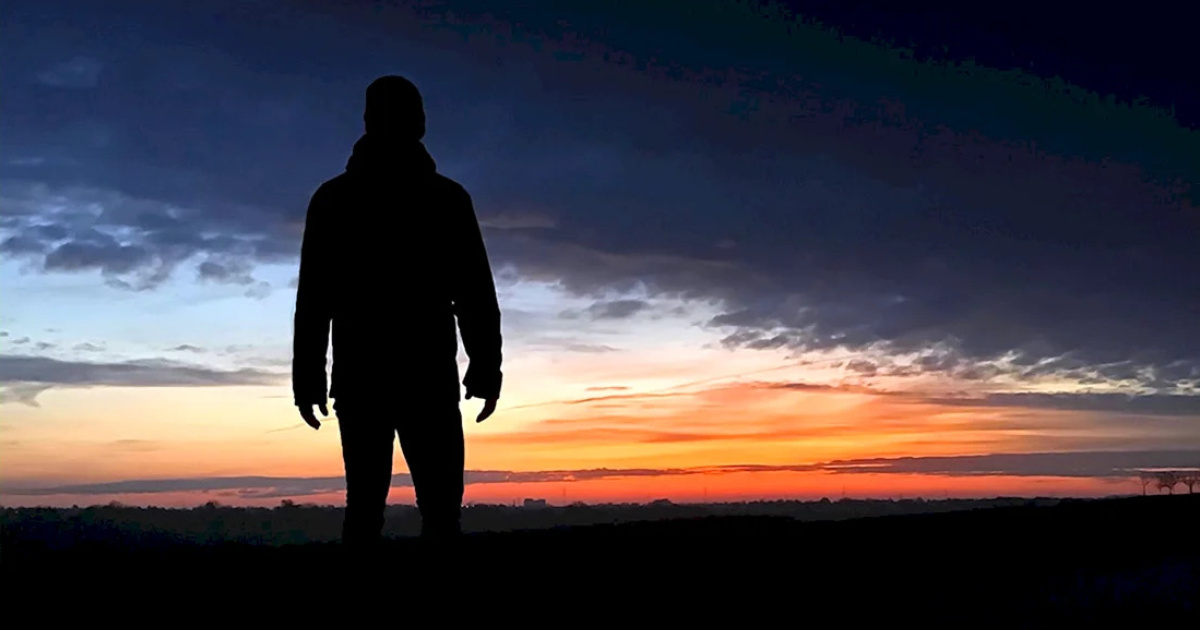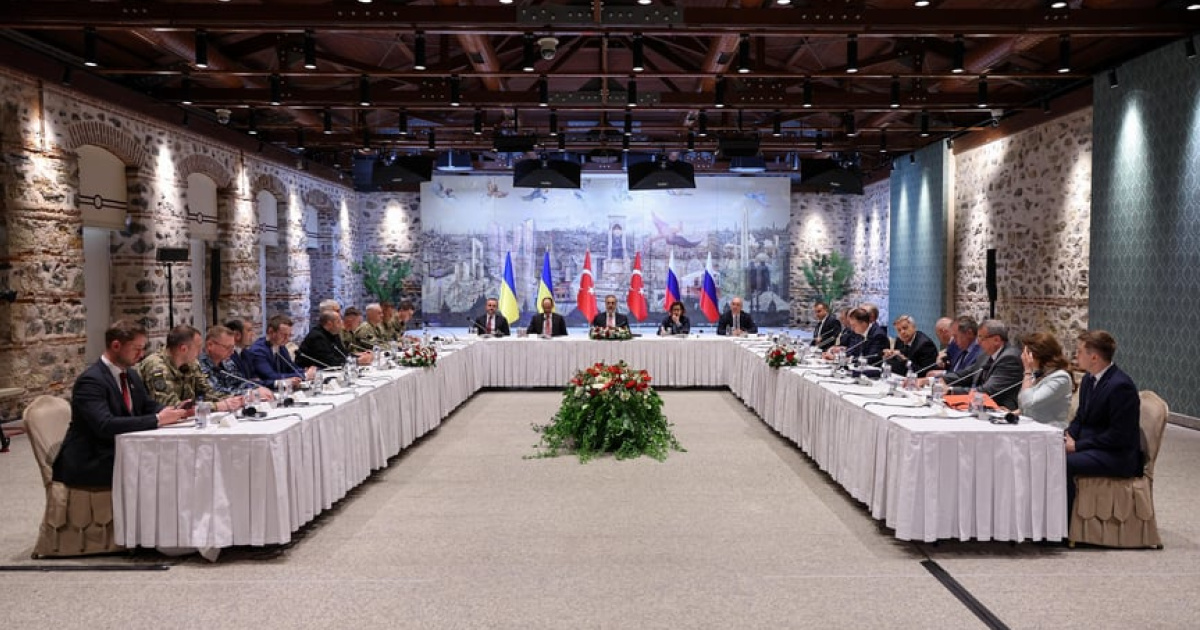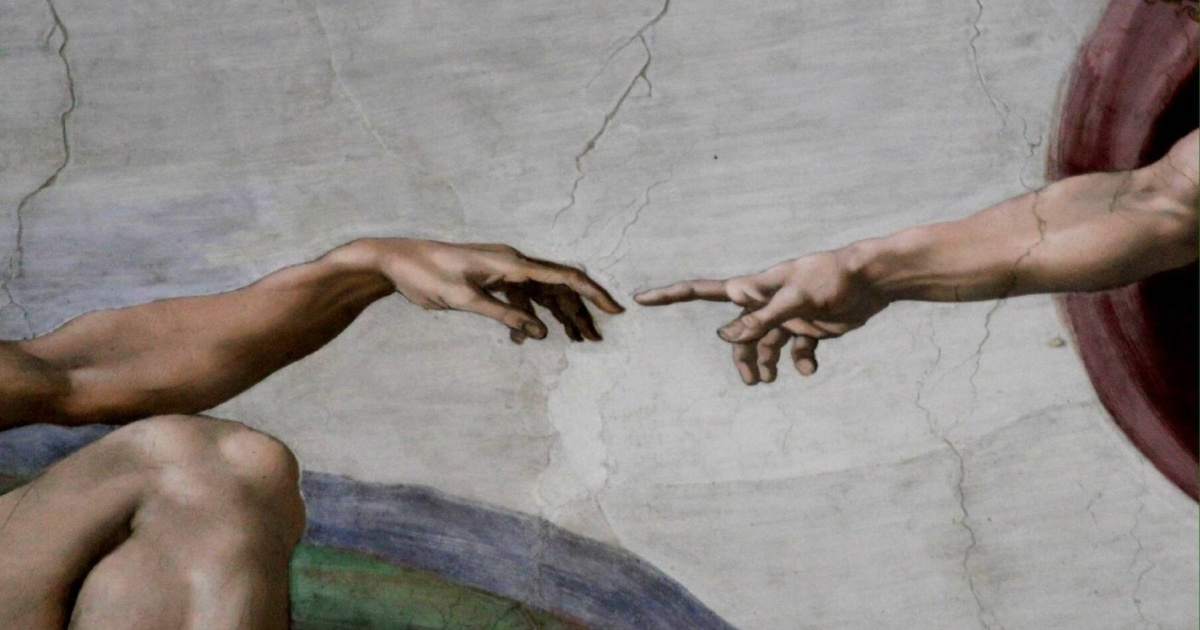“Your people misbehave”, - a taxi driver says when another car with Donetsk number plate overtakes his car by a tailback at great speed. The closer to the uncontrolled section of the Russian-Ukrainian border, the more such cars. Several trucks with a black-blue-red tricolor and abbreviation “DNR” on the number plates rush by in the direction of Rostov. You will see this in no other country.
We return to the border Matveyev Kurgan of the Rostov oblast from the village of Pokrovskoye in the neighboring Neklinovsky district. There, from the beginning of May of this year, they began to accept documents from residents of the Donetsk “republic”, who are allowed to obtain the RF citizenship under simplified procedure.
New borders
The Russian Rostov oblast borders immediately on two self-proclaimed states in the east of Ukraine. Before the war, when the border between the countries was quite transparent, residents of the nearest settlements on both its sides, and sometimes regional centers, regularly crossed it to meet both small household and global everyday needs. There is no language barrier between the Ukrainian and Russian Donbass. On both sides of the border, people speak the same “South Russian” dialect, some - the same surzhik (mix of Ukrainian and Russian languages - ed.).
From the Soviet times, Russians went in the Ukrainian Donbass for, as it was considered to be, cheaper and tastier products. Many came from the Donetsk and Luhansk oblasts to study to the Rostov oblast. Mixed families were created. Being born on one side of the border, people often settled on the other. They went from Rostov to Donetsk for football or other public events. Many Rostov residents were attracted by the Donetsk Airport with relatively cheap flights.
Schemes of flights to the Ukrainian towns, desperately outdated after 2014, are still hanging at the local bus stations throughout the Rostov oblast. For example, a flight from the Rostov Matveyev Kurgan to the Luhansk Sievierodonetsk now goes only to Stakhanov, where there are no more flights from any station on the Ukrainian side.
At the main bus station in Rostov, the running line is duplicated by the voice of dispatcher offering flights to Shakhtarsk and Snizhnу, which are not controlled by Kyiv. The barkers chatter towards the incoming ones at the entrance: “Donetsk-Horlivka-Makiivka”. A bus to Donetsk with number plate of the “Donetsk Republic” departs from the same platform, from which a bus to the Kyiv-controlled part of the Luhansk and Donetsk regions goes now every two days by a roundabout route for about a day.
Today almost no Rostov resident goes to the Ukrainian Donbass - even to make war. Except for individual businessmen who have found the opportunity to develop a business in this situation. The Luhansk and Donetsk residents go now to Rostov for shopping. Many go to this comfortable and rich southern city to rest in a civilized way. They have almost forgotten in Donetsk and Luhansk what the life is like without the curfew.
Breathing of war
Residents of the border- or, as locals say, transit - Rostov oblast and Rostov itself as the largest city closest to the Donetsk region from the Russian side felt the breath of war in 2014-15 most of all in Russia.
People in various camouflages, with exotic stripes, some with military bearing, others - frank rabble, came here for rest and rehabilitation, or on “corporate” matters.
In Rostov restaurants and cafes, the drunken Russian officers confessed to local ladies that they were returning home from the Donetsk or Luhansk “business travel”.
Moving along the local routes and by rail, caravans of military equipment flocked to the border.

A monument to the “heroes of Donbass” set in one of the parks of Rostov in 2017
Stray shells fell from the Ukrainian side to the border towns and villages. Some of the residents left homes and, cursing “Banderites“, moved into the depths of the oblast following the flows of the Donetsk and Luhansk refugees. Tent camps began to appear in the region. Residents of the Donetsk and Luhansk oblasts filled the local resorts, motels and hotels.
“As I understand, people were not released from Debaltseve to the last. They came out in whatever clothes, some - virtually in slippers, - Rostov resident, volunteer Tatyana Kirillova (the name was changed) remembers. - Here they appeared to be in mud, in clay - it is clear that they were walking through the fields. There was paralysis in the city: no one knew what to do with so many refugees. Therefore, the volunteers took care of them initially.
They were gradually distributed in different cities. Right in the waiting room at the station, a man sat at a computer and told how many places appeared and where: the work is such and such, salary is such and such, housing is given. People immediately approached and said: it is OK for us, we are going. They were issued travel documents, put on the train and sent”… Unfortunately, the Ukrainian government did nothing for its citizens…
Special quotas were hastily allocated in the Rostov universities for students from the Donetsk and Luhansk oblasts. The most-favored regime was created for refugees wishing to get a job. Sometimes at the expense of local residents.
“A teacher from the University of Donetsk got a job at the faculty of economics where I worked, - and I lost my job, - Rostov resident Yelena Menshenina, regional coordinator of the Open Russia opposition organization tells. - It was proclaimed that the selection will take place according to the rating, which is formed on the basis of publication activity, scientific work and student works' contests. I was the second rated at the department of 11 people. I was not elected by competition. Someone needed to be fired in order to take people from Donetsk”.
The Rostov oblast became the first in Russia in terms of the number of lawsuits against citizens of Ukraine, journalist and left-wing activist Vladislav Riazantsev, who is engaged, in particular, in monitoring such processes, says.
Riazantsev lists only some of them. Oleksandr Kolchenko is one of the members of the imaginary “terrorist group” of Oleh Sentsov. Oleksiy Sizonovich from Krasnodon is the next “terrorist”, considering the case of which, the Rostov court set a precedent, having acceptied protocols of interrogations from the Luhansk “Ministry of State Security” as admissible evidence. “Ukrainian nationalist” from the same Krasnodon Artur Panov, arrested by a minor in 2015, allegedly planned a terrorist attack in one of the Rostov supermarkets. Serhiy Litvinov from the Stanytsia-Luhanska district, first accused of robbery, then - of mass murders, cleared of the last charges, but nevertheless, received a 9-year term.
Of course, Nadiya Savchenko, who was tried in Donetsk of the Rostov Region - a poor provincial town, for which the scandalous process was probably the biggest event in its history. “As local residents told me, it was probably the first time after the collapse of the USSR that the access roads were done, the fountain was restored, a huge supermarket was built and the center was put in order”, - Vladislav Riazantsev tells.



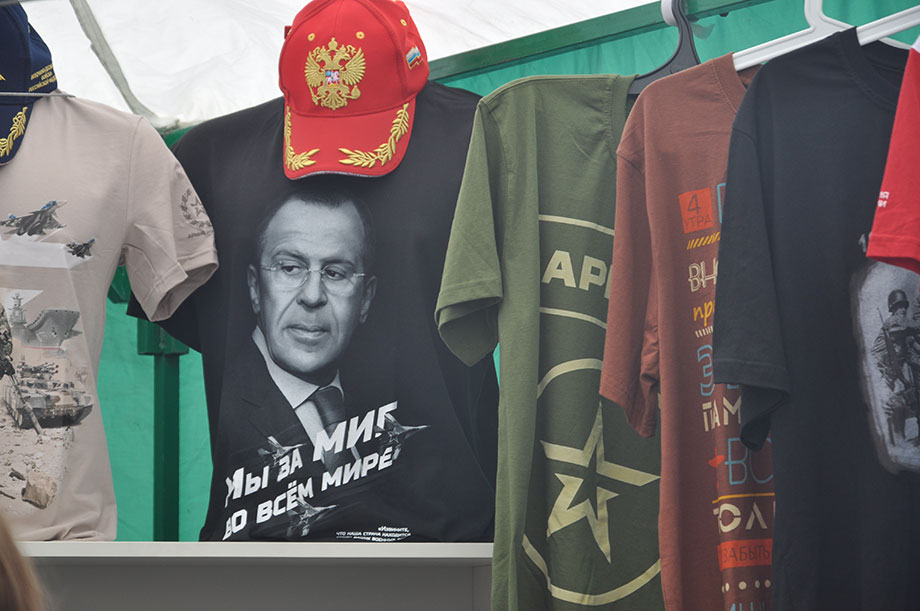
Celebration of Victory Day in Rostov
Meanwhile, the total number of Ukrainian prisoners in the Rostov oblast is measured by hundreds, executive director of the Rostov regional department of the For Human Rights non-governmental movement Oleg Sokurenko says. These are mainly people convicted of minor crimes, such as fraud or drug use. Most of them come from the Donetsk and Luhansk oblasts, the human rights activist says. He recalls, in particular, one guy who was convicted for stealing money from the employer after he was not paid for his work.
The “For Human Rights” organization provides assistance, first of all, to prisoners with serious illnesses and disabilities. In each of the 12 colonies in the Rostov oblast, the staff of the penal system form a separate “detachment” for 80-100 people out of such people, Oleg Sokurenko says. According to his calculations, about 10 percent in such “troops” are citizens of Ukraine. Many seriously ill offenders are being deported after the release. Now, for example, in one of the two temporary detention centers for foreign citizens in the region, a Donetsk resident suffering from severe form of HIV is awaiting expulsion.
As a rule, there are no contacts with the Ukrainian consulate among those under investigation and convicts from the Donetsk and Luhansk regions, Sokurenko says. Therefore, the protection of such people falls primarily on the shoulders of local social activists.
After 2014, the Rostov oblast moved from 10th to 6th place in Russia in terms of crime, Vladislav Riazantsev notes. Weapon smuggling and increase in the number of thefts affected promotion in the embarrassing ranking.
High fences with barbed wire began to grow on the part of the Russian Federation on the eastern part of the Russian-Ukrainian border, intensive patrolling began.
To receive the passport
The point of issuing passports to residents of the Luhansk “republic” was promptly equipped in the border Novoshakhtinsk of the Rostov oblast. For some reason, the same point for the Donetsk residents was organized away from the border checkpoint, - 20 kilometers from Matveyev Kurgan. There is a timetable for consultations on the issues of obtaining Russian citizenship and telephone number for preliminary recording at the door of one of the offices of an imperceptible building, where the local administration of the Federal Migration Service is located in Pokrovskoye. A pleasant young woman on duty warns on a non-visiting day that it is useless to call.
However, there are only four people in the precious office on the day of admission. It is clear from the fragments of conversations that at least two of them came from Donetsk. According to the legend, I came to the consultation to find out how to get Russian citizenship without a passport of the Donetsk “republic” - that is, in circumvention of the condition clearly spelled out in the notorious presidential decree of the Russian Federation.
There is another decree that Vladimir Putin signed five days after the first one. According to it, for simplified obtaining of Russian citizenship, there are enough documents confirming the right to stay in the Russian Federation and reside “in the territories of certain areas of the Donetsk and Luhansk oblasts of Ukraine as of April 7, 2014 and April 27, 2014, respectively“.
Holders of the "republican" passports apply for admission to citizenship directly at the place of residence, and then, after making a positive decision regarding them, buses centrally deliver them to Pokrovskoye or Novoshakhtinsk for taking the oath, explains the Directorate of the Federal Migration Service' officer. In the case of the second decree, the application is submitted personally at the place of registration of the applicant in Russia, he continues, sympathetically recommending to still make a passport of the Donetsk “republic”. According to the legend, I will not have Russian documents until September. To be sure, the car is already running.
“Who has eaten our sausage?”
In the dusty narrow pavilion, which serves as a bus station for the border Matveyev Kurgan, several women sat down on benches waiting for the bus. It is possible to find out who of them from where and where goes more likely not by speech, but by their things. For example, by a multi-colored bag of the Amstor supermarket with a fat red inscription “The lowest prices”.
The conversation begins with seedlings, but, as one might expect, it soon turns to politics. The women consider some bushes in the bag of one of them. Someone is asking for a price. Everyone is loudly surprised when she replies: “One hundred rubles”. The woman explains that the purchase is “from Ukraine”. “From Ukraine”, - another woman repeats as if even with relief, adding with a grin: “We do not have such low prices”.
“Last year, mole cricket had spoiled everything”, - the most brisk of this spontaneous company continues the conversation, as it becomes clear later - the resident of one of the villages of the Russian Matveyev-Kurgan district. She repeatedly moves from the usual Russian language to the purest surzhik.
“In the 70s, we once went to Donetsk, to the center...”, - the Russian woman who suffered from mole cricket stats a new story.
“White Swan…”, - her voluntary translator nostalgically says.
“Mirrors... We have never seen such a thing anywhere. Maruska was with us, she saw herself in the mirror and shouted: “Look, look, the same Maruska is there!”, - she laughs.
“And I went there on business one time. I drove through some square, the miners were sitting and striking. I saw they have written: “Who has eaten our sausage?”.
It becomes clear from further conversations that according to the company, the miners themselves have eaten the sausage - people who used unusual for these Rostov villagers luxury like the mirror White Swan - the former Soviet department store in the center of Ukrainian Donetsk, which acquired a dubious distinction in 2004.
“They will come here soon”, - someone from the company says askance. - For passports and pensions”.
“They do not want our passports”, - a woman, who has so far hardly participated in the conversation, interferes. - My relative is registered in Volnovakha, she travels there every two months for a pension and does not even want to hear about Russian citizenship”.
“I have a relative in the Amvrosiivka district. As she left once and came under fire, she said: "Hell with this pension, I have enough of the Russian one".
“Russian?”
“$60. She saw that I have $140. And then she saw the $100 gas bill and could not believe her eyes. The prices will rise again in the summer. Russia is building its pipes all over the world, and we are being billed...”
They say in Rostov that friction between locals and refugees already occurred in the oblast. Visitors who used free housing, received financial assistance and did not work began to annoy the Rostov residents in a situation of economic crisis.
People fear...
Today, due to the alleged mass issue of Russian passports, many in the Rostov oblast expect a new wave of tension. They are confident in Rostov that, following passports, newly-minted Russians from Donetsk and Luhansk will also receive Russian pensions.
“People fear that this will again be a heavy burden for the budget, -Tatyana Kirillova saays. “When they issued passports and Russian pensions in the Crimea, the Russians were outraged because the Crimeans did not work in Russia”.
In a situation of slow, though far not critically deteriorating financial situation due to the falling energy prices, war and sanctions, many Russians are less enthusiastic about the expansionist plans of Moscow than in 2014-15, - my interlocutors consider.
But few people think that the residents of the Donbass "republics" have received pensions and salaries from the Russian treasury already for a long time. Although the budgets of Donetsk and Luhansk are classified, it is obvious that the “republics” do not have their resources for the social sphere. Therefore, it is unlikely that a wave of new citizens will make a new breach in the pockets of Russians. Rather, the current policy of the Russian leadership as a whole will make it.
However, my interlocutors state that in the present conditions, the Kremlin still has an effective mobilization resource.
“Even though the economic situation has worsened, many people still believe that it is necessary to preserve this buffer zone in the Donbass in order to protect themselves from NATO and preserve the status of great power. This is the result of propaganda - the fear of NATO and Americunts, who manipulate Europe and Ukraine and pull their dirty tentacles to Russia. If we need to confront America, then we have no other way out”, - Yelena Menshenina says.
Yulia Abibok, Rostov-Matveyev Kurgan-Rostov, OstroV
The text was written as part of the Memory Guides project: Information Resources for the Peaceful Conflict Transformation of the Center for Independent Social Research - CISR e.V. Berlin with the support of the German MFA in the framework of project “Expanding Cooperation with the Civil Society in the Eastern Partnership Countries and Russia“.
